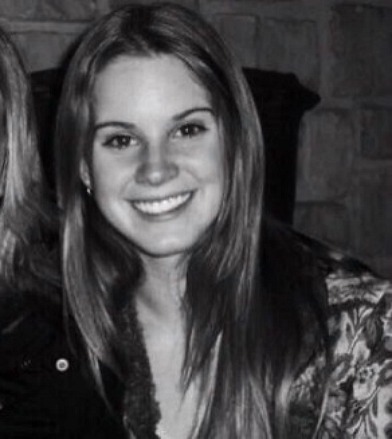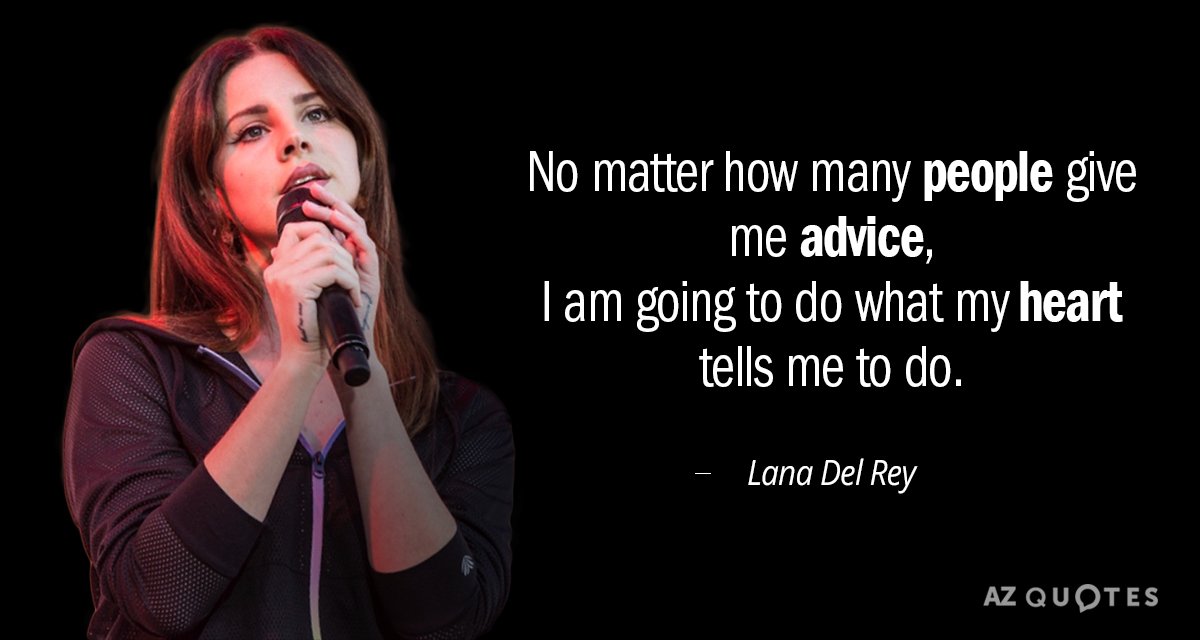My current musical obsession. Yes, she is a bit "fake" and manufactured to appear more indie than she is, but the sad beauty of her songs can not be denied. Sigh. This is so my mood right now -
Wow. So I just watched it myself and she seems to be verydevaluing ... talking so much about choosing clips for her video only because of aesthetics.. no meaning behind anything, etc. Just beauty, how colours look.. SEI seems too simple of a typing though. She actually doesn't appear to show too much
in my opinion.
Her lyrics are very straight forward. Almost too much so. Gamma/Delta? SLI?
Lana's quotes:
"I was always an unusual girl. My mother told me that I had a chameleon soul. No moral compass pointing me due north, no fixed personality. Just an inner indecisiviness that was as wide as wavering as the ocean. And if I said that I didn’t plan for it to turn out this way I’d be lying- because I was born to be the other woman. I belonged to no one- who belonged to everyone, who had nothing- who wanted everything with a fire for every experience and an obssesion for freedom that terrified me to the point that I couldn’t even talk about- and pushed me to a nomadic point of madness that both dazzlez and dizzied me. Every night I used to pray that I’d find my people- and finally I did- on the open road. We have nothing to lose, nothing to gain, nothing we desired anymore- except to make our lives into a work of art."
"When I was young I felt really overwhelmed and confused by the desire not to end up in an office, doing something I didn't believe in."
"Find someone who has a life that you want and figure out how they got it. Read books, pick your role models wisely. Find out what they did and do it."
"I used to wonder if it was God's plan that I should be alone for so much of my life. But I found peace. I found happiness within people and the world."
"I have a personal ambition to live my life honestly and honor the true love that I've had and also the people I've had around me. I want to stay hopeful, even though I get scared about why we're even alive at all."
"I didn't live at school, I lived where I could and studied what I enjoyed studying. I took what I wanted from that education but was making my first record at the same time. I don't know anyone from school. I was just leading a different life. I was really interested in writing and other things."
"I write my own songs. I made my own videos. I pick my producers. Nothing goes out without my permission. It's all authentic."
"I don't know that much about who directs what movies, but I'm definitely inspired by the look of old movies; I find them to be really beautiful."
"Distance sometimes lets you know who is worth keeping, and who is worth letting go."
Twitter: "I think we're losing what we used to have, you know?"
"I always fall for the wrong guy. Things that are bad always taste nice."
"My boyfriend’s really cool, but he’s not as cool as me."
"You're boring me to death and I'm already dead."
"I am my Soulmate."
"Now my life is sweet like cinnamon, like a fucking dream I'm living in."
'You're a hard man to love and I'm a hard woman to keep track of."
"Heaven is a place on earth with you, tell me all the things you wanna do."
"Is he mine? Not quite yet, but I'm gonna get him."
"When I was very young I was sort of floored by the fact that my mother and my father and everyone I knew was going to die one day, and myself too. I had a sort of a philosophical crisis. I couldn't believe that we were mortal."
"I once had a dreams of becoming a beautiful poet, but upon an unfortunate series of events some of those dreams dashed and divided like a million stars in the night sky that I wished on over and over again, sparkling and broken. But I didn't really mind, because I knew that it takes getting everything you ever wanted, and then losing it to know what true freedom is."




 Reply With Quote
Reply With Quote

 -
- 
 (as per tcaudilllg)
(as per tcaudilllg)
 :" hitting cap makes me envision cervix smashing"
:" hitting cap makes me envision cervix smashing"















 your mobilizing Fe is just an assumption.
your mobilizing Fe is just an assumption.